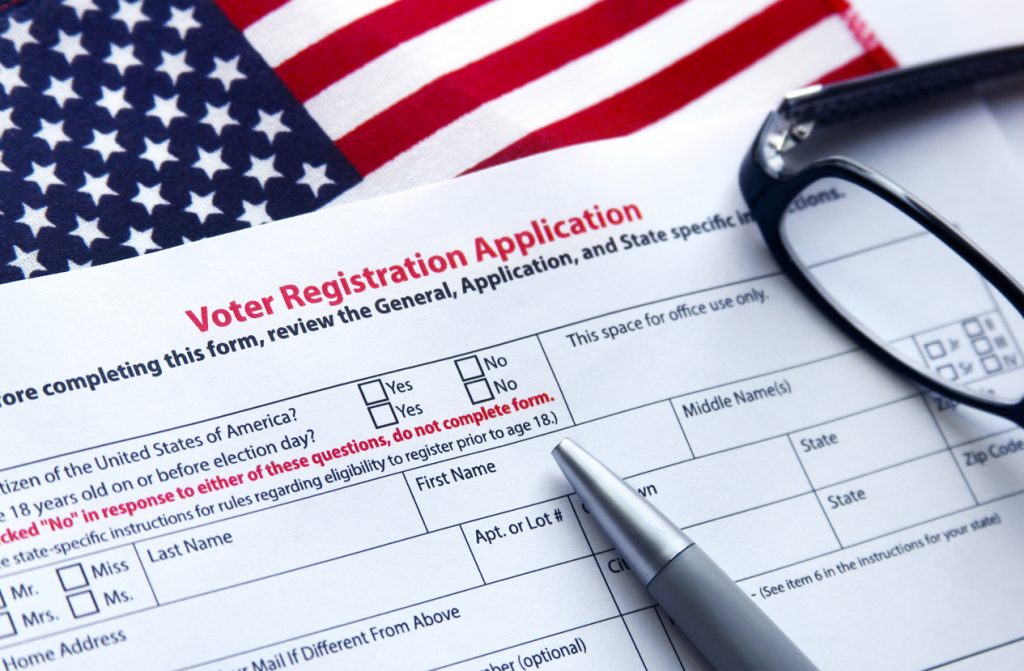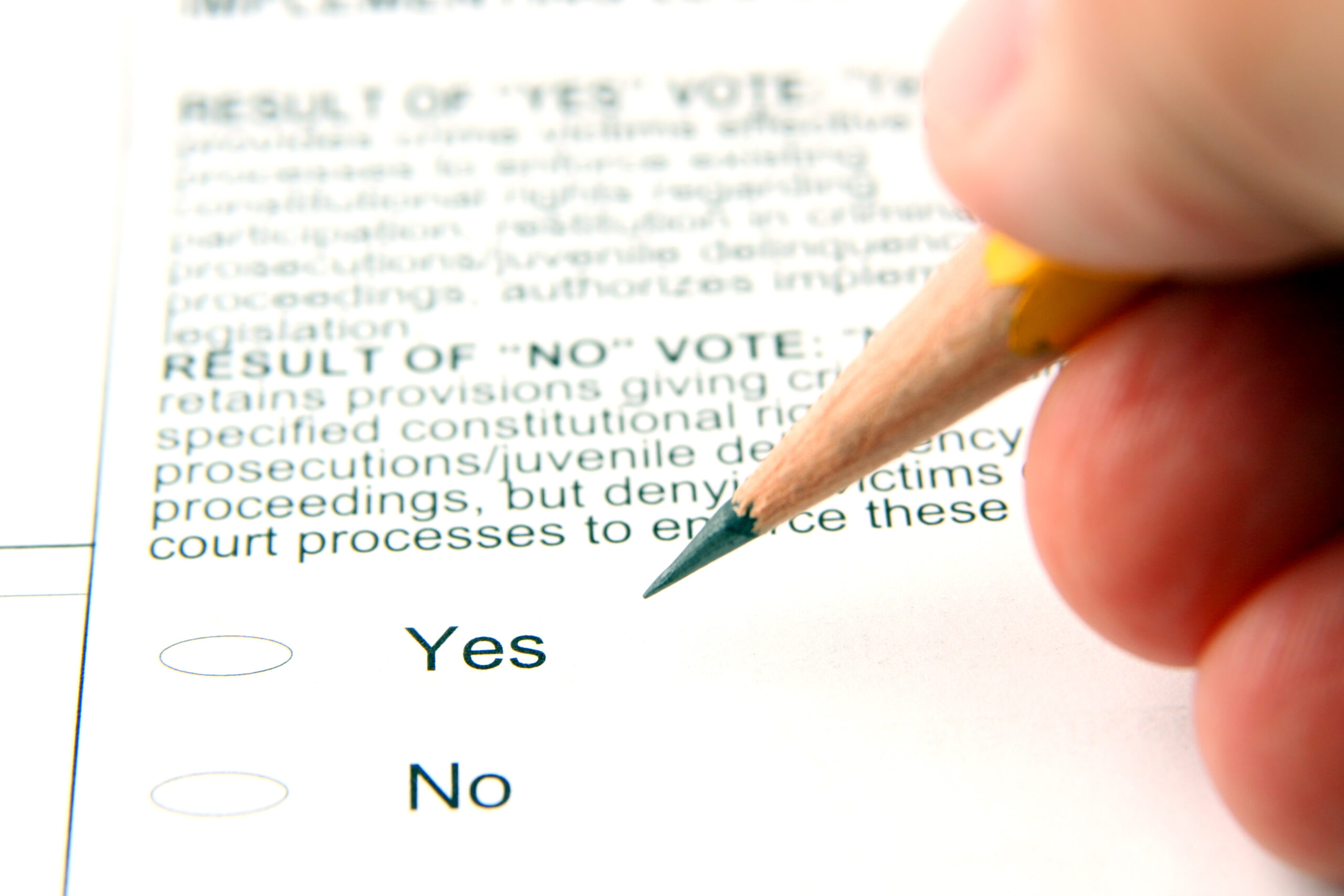
Automatic voter registration allows eligible individuals to become automatically registered to vote when they interact with certain agencies in the government, such as a state agency overseeing motor vehicles. While most people are familiar with the federal “motor voter” law from 1993 that allowed individuals the opportunity to register to vote when applying for a driver’s license (or renewal), states started taking their own action when Oregon became the first state to pass automatic voter registration in 2016.
Since then, at least 22 states have passed automatic voter registration legislation, and the list could keep growing. In the current 2022 legislative session, lawmakers in additional states hope to implement an automatic voter registration process.
Arizona: Pending AVR Bill
In late January 2022, Arizona state lawmakers introduced automatic voter registration, SB 1453. The bill would allow individuals applying for a driver’s license or renewal, or a non-operating ID license or renewal, to be registered to vote automatically on completion of the application for the license or renewal. The individual would have 21 days to decline to be registered to vote.
If passed, SB 1453 would become effective December 31, 2022.
Minnesota: Automatic Voter Registration Bill
Minnesota state lawmakers introduced two companion pieces of automatic voter registration legislation early last year. SF 1104 and HF 607 would establish an automatic voter registration system in the state. Last March, the Minnesota House Transportation Finance and Policy Committee amended and approved HF 607. The bill would implement automatic voter registration by using information collected by government agencies during certain transactions, such as applications for a new or renewed Minnesota driver’s license, a state ID card, or an application for benefits or services through state agencies.
Under the bill, individuals would have 20 days to decline registration.
Missouri: Pending AVR Bill
HB 257, introduced in early February, would allow for automatic voter registration in conjunction with the issuance, updating, or renewal of a driver’s license or ID card. Under the bill, a completed voter registration application or change in address for voting purposes must be forwarded by the license issuing official to the Secretary of State within five days of receipt.
Individuals would be permitted to decline to become registered to vote when applying or renewing their driver’s license or ID card.
Pennsylvania: Pending Automatic Voter Registration Legislation
Lawmakers introduced Senate Bill 141 in January 2021 to address automatic voter registration in the Commonwealth of Pennsylvania. Current law in Pennsylvania allows citizens to register to vote either electronically or by filling out a voter registration form when they apply for public benefits and services or licenses through PennDOT or other state agencies.
SB 141 would allow the same agencies to collect an individual’s relevant voting information with their application and send it electronically to the Department of State and the county they are in to register that voter. Prior to completing the registration, an individual would receive a notice allowing them to either select a political party affiliation or to opt-out and decline the registration. Under the bill, an individual would have 21 days to opt-out and would otherwise be registered to vote.
SB 141 is still pending in the Senate State Government Committee.
West Virginia: AVR Prohibition Bill
Lawmakers in West Virginia introduced House Bill 4518 in early February. The bill would prohibit an agency of state or local government from automatically registering to vote any eligible person without first obtaining an explicit, written consent to be registered to vote and an appropriate registration form.
Federal Automatic Voter Registration Legislation Update
Federally, several bills would support automatic voter registration. In April 2021, Representative David Cicilline (D-RI-1) introduced the Automatic Voter Registration Act (H.R. 2301) in the U.S. House of Representatives. The AVRA would require each state motor vehicle authority to transmit the identifying information to the appropriate state election official. The state election official would then be required to notify the individual to permit them 21 days to opt-out of automatic voter registration.
Also in the House, the For the People Act (H.R. 1/S. 1) would address voter access, election integrity and security, campaign finance, and government ethics. Among its many good-government provisions is an expansion of voter registration from automatic voter registration.
In the U.S. Senate, Senator Amy Klobuchar (D-MN) introduced the Freedom to Vote Act (S. 2747) in September 2021. Among other improvements to the process of U.S. elections, the bill would incorporate the AVRA provision requiring better coordination, protection, and automatic voter registration by state and federal motor vehicle agencies and chief election officials.
Also in the Senate, the Voter Empowerment Act (S. 954) introduced by Senator Kirsten Gillibrand (D-NY) would require states to make available online voter registration and establish automatic voter registration systems, among other measures.
However, federal support for automatic voter registration is not universal, evinced by Representative Louie Gohmert’s introduction of H.R. 5448, which would, among other provisions, ban states from using automatic voter registration systems.
Latest News
Photo credit: iStock.com/rarrarorro The 2025 Pennsylvania primary election results are in. From Pittsburgh’s tightly contested mayoral race to Harrisburg’s crowded Democratic primary and key judicial contests across the state, voters made their voices heard. Meanwhile, [...]
Photo credit: iStock.com/burcu demir The 2024 election brought a major shift in the political landscape, with Republicans making sweeping gains across the country. Former President Donald Trump returned to the White House, winning both the [...]
Photo credit: iStock.com/Svanblar In the 2024 U.S. general elections, voters nationwide will make crucial decisions on 2024 ballot measures alongside selecting their political representatives. These ballot measures allow citizens to directly vote on policy issues [...]
Ever wondered what goes into organizing a U.S. presidential debate? In this episode of Back in Session, Ryan Stevens and Ryan DeMara sit down with Jean Cantrell and Dan Felton, who have served as members of [...]






Stay In Touch